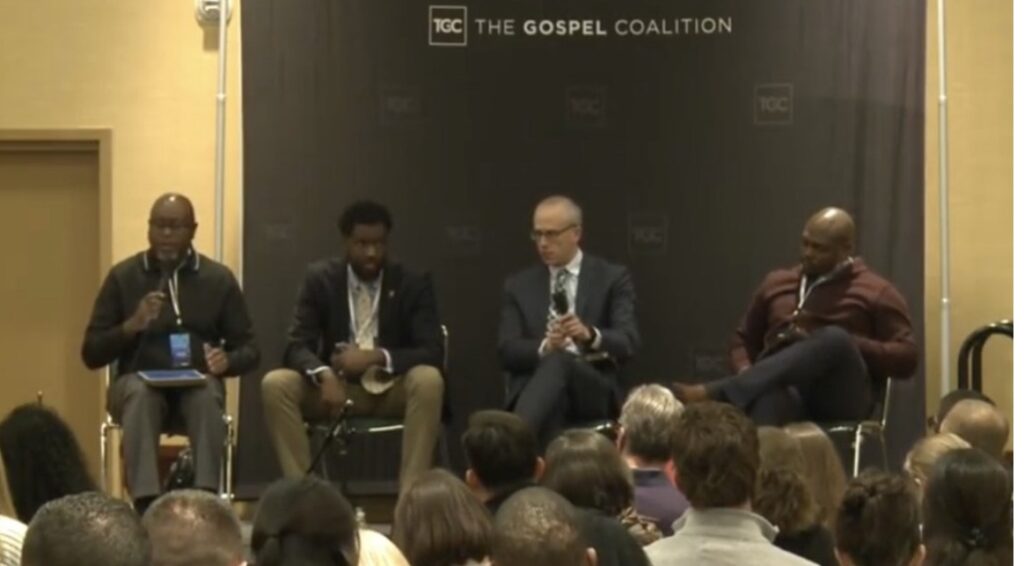
Together for the Gospel National Conference (TGC19) held a panel discussion, Jesus and Justice: We Must Love Our Neighbors in Word and Deed. Featured on the panel were Darryl Williamson (Counsel member of TGC and lead pastor at Living Faith Bible Fellowship in Tampa, FL), Phillip Holmes (author and vice president of institutional communications at Reformed Theological Seminary), Kevin DeYoung (Board member of TGC, author, and senior pastor at Christ Covenant Church, Matthews, NC), and Jason Cook (author at TGC and associate pastor of preaching at Fellowship Memphis).
Part of that discussion included:
…what churches and individual Christians can do to pursue restorative justice in a way that flows from the gospel.
[Emphasis mine]
What is Restorative Justice?
The Gospel Coalition (TGC) featured the article Taking a Stand for Restorative Justice dated June 20, 2017.
The article stated:
Today the Colson Center, Prison Fellowship, the Ethics and Religious Liberty Commission of the Southern Baptist Convention, and the National Association of Evangelicals have joined together to sponsor “The Justice Declaration.” The statement laments the over-reliance on incarceration in the United States and calls upon the Church to deploy its unique and unparalleled capacity to respond to crime and over-incarceration.
The Justice Declaration states, in part, the following:
The Church has both the unique ability and unparalleled capacity to confront the staggering crisis of crime and incarceration in America and to respond with restorative solutions for communities, victims, and individuals responsible for crime.
With an “urgent” call for the church to act, the sponsors of the statement asked the Church to affirm:
- Affirm that the God of the Bible is a just God: justice flows from God’s very character, and the works of God’s hands are faithful and just;
- Treat every human being as a person made in God’s own image, with a life worthy of respect, protection, and care; Foster just relationships between God, fellow human beings, and property, which will lead to human flourishing;
- Redouble our efforts to prevent crime by cultivating the “seedbeds of virtue,” including families, churches, neighborhoods, schools, and other sources of moral formation;
- Care for the physical and emotional wounds of survivors of crime, ensure their safety, and support their meaningful participation in the justice system;
- Take up the cause of the poor and vulnerable, ensuring fair access to education, economic opportunity, the social safety net, and, for those accused of crimes, the instruments of justice;
- Advocate for proportional punishment, including alternatives to incarceration, that protects public safety, fosters accountability and provides opportunities to make amends;
- Preach the good news of the gospel and proclaim that true freedom in Christ is available to all, including prisoners, recognizing that His atoning sacrifice covers all sin;
- Invest in the discipleship of incarcerated men, women, and youth, protect their safety and human dignity, and minister to the needs of families and children with incarcerated loved ones;
- Celebrate redemption in our congregations and communities by welcoming back those who have paid their debt to society, and by providing opportunities for all persons to reach their God-given potential.
In Part II, we examine the TGC19 panel discussion Jesus and Justice and the emphasis made on the Church’s responsibilities to “do”Restorative Justice in light of scripture.











